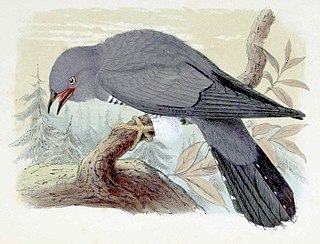Premiere

The piece was premiered at the Théâtre de la Ville in Paris on 26 January 1987 by Yvonne Loriod. The duration is about 14 minutes.
Petites esquisses d'oiseaux, is a piano work by Olivier Messiaen composed in 1985, dedicated to his wife Yvonne Loriod. It has six parts, three of which are devoted to robins. [1]
In the preface, Messiaen writes:
These are six very short pieces. They are both very similar and very different. Very similar by the harmonic style where complex sounds with changing colors evolve. The blues, reds, oranges, violets, "transposed reversal chords" dominate. The "chords with contracted resonance" and the "chords of the chromatic total" add their more violent or subtle colours. However, each bird has its own aesthetic, the melodic and rhythmic movements differ from one piece to another. The three pieces devoted to familiar robin [ disambiguation needed ] contain pearly arpeggios, descending, almost glissandos, followed by slow notes, and more refined drawings. The blackbird [ disambiguation needed ] sings some sunny, a little victorious verses. The song thrush stands out through its incantatory repetitions. Finally, the eurasian skylark, which ends, has a sizzling volubility, revolving around an acute dominant, punctuated from time to time by two slow and strong notes, all corresponding to the phases of the bird's flight.
— Olivier Messiaen, Petites Esquisses d'oiseaux

The piece was premiered at the Théâtre de la Ville in Paris on 26 January 1987 by Yvonne Loriod. The duration is about 14 minutes.
The six movements are titled: [2]
Recordings include:

Olivier Eugène Prosper Charles Messiaen was a French composer, organist, and ornithologist. One of the major composers of the 20th century, he was also an outstanding teacher of composition and musical analysis.

Yvonne Louise Georgette Loriod-Messiaen was a French pianist, teacher, and composer, and the second wife of composer Olivier Messiaen. Her sister was the Ondes Martenot player Jeanne Loriod.

The Turangalîla-Symphonie is the only symphony by Olivier Messiaen (1908–1992). It was written for an orchestra of large forces from 1946 to 1948 on a commission by Serge Koussevitzky for the Boston Symphony Orchestra. Along with the Quatuor pour la fin du temps, the symphony is one of the composer's most notable works.

Pierre-Laurent Aimard is a French pianist. He focuses on contemporary music.
The Vingt Regards sur l'Enfant-Jésus are a suite of 20 pieces for solo piano by the French composer Olivier Messiaen (1908–1992).
Qin Chuan, also known as Chuan Qin, is a Chinese pianist and a professor at School of Arts, Shandong University.

Le Merle noir is a chamber miniature by the French composer Olivier Messiaen for flute and piano. Written and first performed in 1952 it is one of the composer's shortest independently published works, lasting just over five minutes. It bears neither time nor key signature.
Feuillets inédits are four disregarded works by Olivier Messiaen arranged and revised for piano and ondes Martenot by Yvonne Loriod in dedication to her sister Jeanne. Conceived in unspecified dates mid-1930s, they were published by Éditions Durand in 2001.
Paul Kim is a Korean-American classical pianist.

Des canyons aux étoiles... is a large twelve-movement orchestral work by the French composer Olivier Messiaen. American Alice Tully commissioned the piece in 1971 to celebrate the bicentenary of the United States Declaration of Independence in 1976.
Concert à quatre is the final work of the French composer Olivier Messiaen. It is a concerto written for four solo instruments and orchestra.
Quatre Études de rythme is a set of four piano compositions by Olivier Messiaen, written in 1949 and 1950. A performance of them lasts between 15 and 20 minutes.

Birdsong has played a role in Western classical music since at least the 14th century, when composers such as Jean Vaillant quoted birdsong in some of their compositions. Among the birds whose song is most often used in music are the nightingale and the cuckoo.
Visions de l'Amen is a suite of seven pieces for two pianos by the French composer Olivier Messiaen (1908–1992), commissioned for the Concerts de la Pléiade that were held during the German occupation of Paris. It was composed in 1943 for the composer and Yvonne Loriod, and its performance requires about 40–45 minutes.
Catalogue d'oiseaux is a work for piano solo by Olivier Messiaen consisting of thirteen pieces, written between October 1956 and September 1958. It is devoted to birds and dedicated to his second wife Yvonne Loriod.
Sept haïkaï — esquisses japonaises is a composition for piano and small orchestra by Olivier Messiaen. It was published by Alphonse Leduc in 1966 and subsequently reprinted numerous times. It typically lasts about twenty minutes.
Oiseaux exotiques is a piece for piano and small orchestra by Olivier Messiaen. It was written between 5 October 1953 and 3 January 1956 and was commissioned by Pierre Boulez. It is dedicated to the pianist Yvonne Loriod, who later became the composer's wife.

The Prélude, usually affixed with the subtitle pour orgue, is an organ piece in E major by French composer Olivier Messiaen. The work, which dates from the 1920s, is, along with the Offrande au Saint Sacrement, the earliest surviving organ work of the composer. Scholars differ as to the exact date and purpose as to when and why it was composed.
Réveil des oiseaux is a work by Olivier Messiaen for piano and orchestra written in 1953. Messiaen invoked birdsong in this composition, as he had in the earlier Quatuor pour la fin du temps (1941). In Réveil des oiseaux he used bird song motifs throughout.